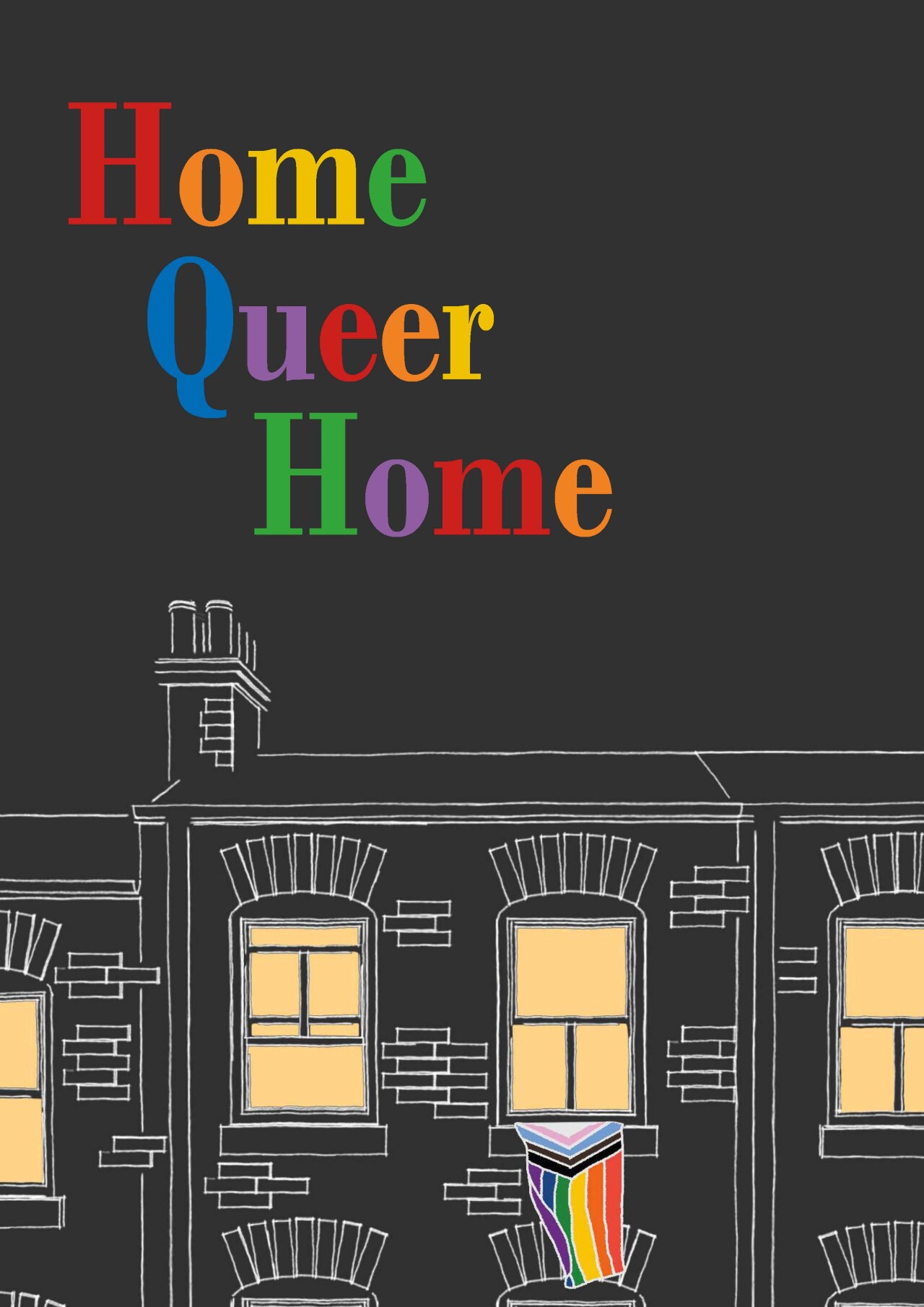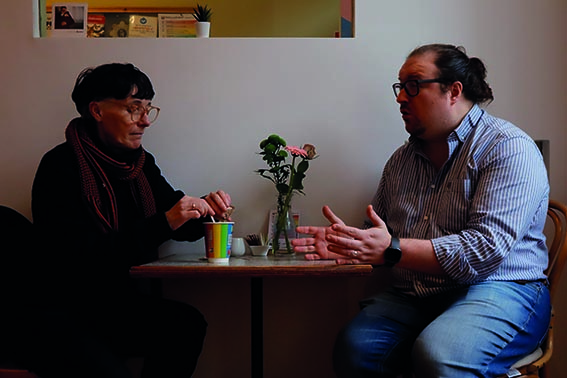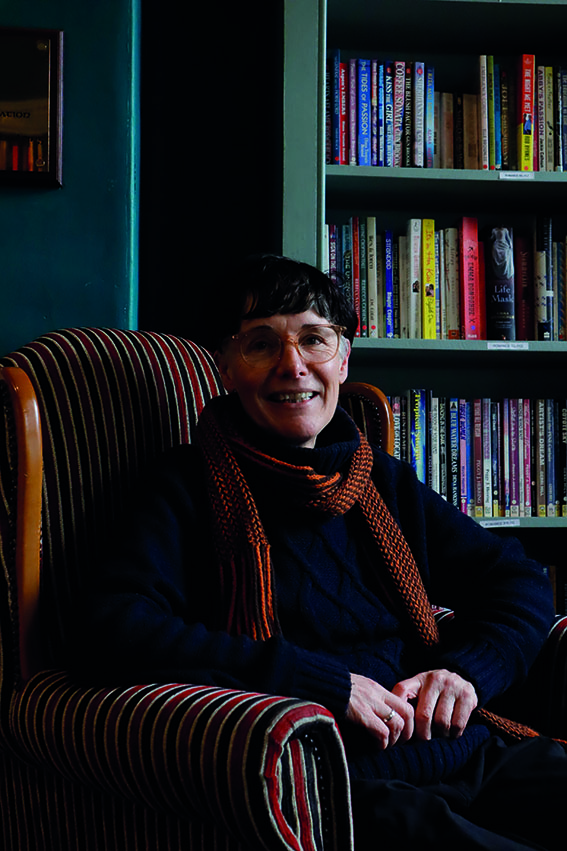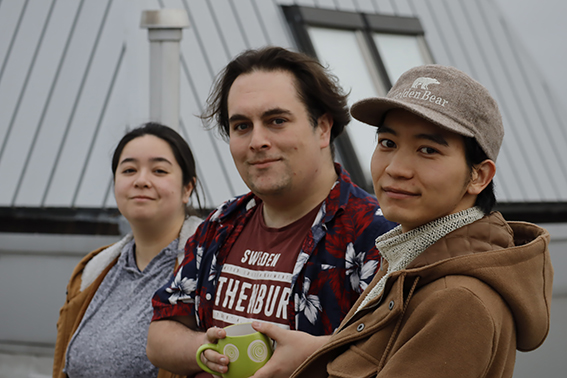



Ruben McCarthy is the Deputy Editor of Currently, which won Magazine of the Year at this year’s National Student Media Awards. His article which features in the magazine is titled ‘Home Queer Home’ highlighting the unique housing needs of the LGBTQ+ community in Ireland.




The LGBTQ+ community faces unique challenges amidst the housing crisis, writes Ruben McCarthy.
When Robyn Deane and her partner Kate McCabe were waiting for a bus in Drumcondra, little did they know that an innocent act of showing affection would provoke a vicious attack from a 15-year-old.
The incident happened on May 16, 2022, in broad daylight on a busy street. Robyn described in her statement to the police that he first screamed in her face, walked away but then came back shouting a derogatory term, "two fu * * * * g dykes". Both women were then assaulted viciously, being punched repeatedly in the face - simply for kissing and cuddling in public.
According to LGBT Ireland's annual report, there was a 30% increase in hate crimes directed against the community in 2022, making them the second most targeted group after racial minorities. In this current climate, many LGBTQ+ people are finding safety in numbers; coming together to live in secure communities
Oisín O'Reilly, the CEO of Outhouse - an LGBTQ+ resource centre in Dublin - said: "I think people are banding together into safer spaces to help weather some of the storm they feel is coming, whether it's around violence and safety, or political unrest,".
Located on 105 Capel Street, Outhouse is situated in one of the oldest Georgian buildings in the city and offers a library of queer literature, workshops, peer support, information resources and a cafe. Over 42,000 people walked through their doors in 2023.
"Out of those who came to us last month, 14.5% of all people looking for help were specifically about housing or homelessness - so it's over one in 10. The effect of what's happening in society and in the markets is absolutely massive," said Oisín.
In 2020, the European Union Agency for Fundamental Rights published a survey looking at issues facing the community in Europe.
It captured the voices of almost 140,000 LGBTQ+ people from the EU, North Macedonia and Serbia, and it is the largest survey of its kind ever conducted. A
mong the data, it reveals that 24% of the respondents have experienced housing difficulties. This rises to 46% for those who are transgender or intersex.
The overall findings of the survey indicate minimal advancements in the last seven years. While an increasing number of individuals express openness about their queer identity, a significant majority still hold back from public displays of affection, such as holding their partner's hand.
It's estimated that 6-10% of the Irish population identifies as LGBTQ+, according to BelongTo, Ireland's national LGBTQ+ youth service. Oisín said that it's unlikely there will ever be a point where queer experience, identity and culture are mainstream.
“There is some thought out there in a post-marriage equality world, queer spaces aren’t needed, but there are a huge amount of obstacles that queer people still face,” said Oisín.
In 2020, Focus Ireland commissioned a research study on LGBTQ+ youth homelessness in Ireland, marking the first attempt to shed light on the distinctive challenges faced by Irish queer youth grappling with homelessness and housing insecurity.
Adam Spollen, Policy Officer at Focus Ireland, said, "It's important to be able to recognise their specific needs - especially when exiting homelessness and the inequalities that they experience in the housing market, be it discrimination from landlords or living in shared spaces with people who may not be welcoming or even outright discriminatory".
"In the LGBTQ+ community, coming out brings a risk of familial relationship breakdown, especially in the toxic environment that's out there right now and people feeling that their safer option is to leave home," said Adam.
The research study's primary objective was to gain in-depth insights from the LGBTQ+ community which can guide the policies and services tailored to address the unique needs.
"Having a home where you can authentically be yourself and never have to question how you express your identity is always going to be there," said Oisín. He added that unless the Irish Government radically accelerates the construction of social housing, it's difficult to see a route where LGBTQ+ people will have access to safe and secure accommodation.
"If we look at Berlin, Amsterdam, or other major European cities, a housing co-operative feels like a model that makes sense. However, in Ireland, it's quite a unique housing environment in the landscape," said Oisín.
Dublin's queer housing co-operative initiative, Aisteach, seeks to change this.
A housing co-operative is an arrangement where residents collectively own and manage the property, fostering a sense of community and belonging. Members typically have an equal say in decision-making processes, contributing to a more democratic living environment.
Aisteach was founded on the idea to create an alternative affordable housing model, as they were concerned about the housing crisis and how it was affecting the queer community in Dublin. 'Aisteach' is the Irish word for queer and carries a clever play on words, as 'teach' translates to 'house'.
It's still at the early stages with around 90 members. Their current aim is to get funding for a feasibility study, to look at how to make their vision a reality. In the past, most housing cooperatives in Ireland have been privately owned, with people usually coming together to build a house.
Aisteach wants to create a housing model where property remains within the community, with ownership that's shared, sustainable and continues down the generations, so it doesn't end up getting sold off and causing people to disperse.
Eileen Leahy, Chair of Aisteach, said, "The housing crisis is decimating communities - the queer community in particular. If it continues, it'll only be a certain type of person who has a particular income and particular background to be able to afford to continue to live in Dublin.
“It's not for speculation, it's not for profit, it's something just for the person," said Eileen.
Living with other queer people was something Glenn Stevenson, Siobhán O'Connor and Oliver Huang always felt drawn towards, creating an instant common ground and a feeling of safety, and belonging. They are currently all living together in a three-bedroom apartment just off Smithfield Square in Dublin 7.
Siobhán, who is half Filipino and half Irish, was born and raised in Hong Kong and moved over to Dublin last year. Her former manager recommended the Queer Housing Facebook group when she was looking for a place to live. "He was like ... oh, it's so easy, there's so many people posting every single day, you should at least give it a go. I just put in one post, and I got contacted by Glenn almost right away," said Siobhán.
With over 5,000 members and multiple daily posts - the Facebook group creates a safe platform for people to find a place they can call home. The private group is accessible only through a request, and answering a few screening questions. This ensures that the online space is used for the intended purpose and to protect the safety of the users.
Being in a household with two gay men makes Siobhán feel she can talk much more freely about her sexuality and personal life, as there is a feeling of being understood and accepted. She said, "Even as gay men, they just understand when I have relationship trouble. So, it's just so much more comfortable to talk. My favourite thing is having the ability to speak freely.
I feel like that's something you can only really get with people who have gone through the same things. It's just a different vibe- you can't quantify it," said Siobhán.
Dublin 7 is well known for being an LGBTQ+ friendly area. Stoneybatter is Ireland's largest LGBTQ+ neighbourhood - with 8.9% of its population in same- sex relationships, according to a 2018 study released by Daft.ie.
The same 2018 study also showed that rents in popular LGBTQ+ areas are €150 per month higher than average.
Oliver moved to Dublin from China in 2021 and has been living with Glenn and Siobhán for over a year. He said, "a home is a place where you should feel supported in lots of ways, with people who accept and take care of you and would love to simply enjoy spending time together.”
Oliver found it difficult to find accommodation when he first arrived in Ireland, even resorting to Grindr, a dating app aimed at queer men, to try and find a place to live. "I posted on Instagram and luckily Glenn saw it and offered me a room," he said.
"I think the housing problem is going to be miserable. I'm not hoping that it will change in a couple of years, but I'll try my best to get through it. I have a couple of friends who chose to move away from Dublin, to cut the budget of rent and live an easier life," said Oliver.
Glenn is the leaseholder of their shared Smithfield apartment, moving in just after the first Covid lockdown in 2020.
Prioritising living in a comfortable space with people you get along with is something Glenn feels takes the backseat since affordable housing options are limited amid the shortage in Dublin city: "Safe is one thing – affordable is the real kicker. I am extremely lucky with my current housemates, they're absolutely lovely people," he said.
"Being LGBT ... it's almost feeling like being on an island by yourself. So finding your tribe is one of the best things about growing older. I guess that's why I like to be with my own people," said Glenn.
Gotowww.outhouse.ie/housing-links for more information on housing support resources. All images are credited to Elio Bonelli. Cover graphic designed by Mel Galley